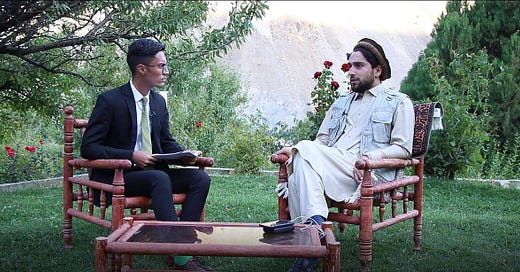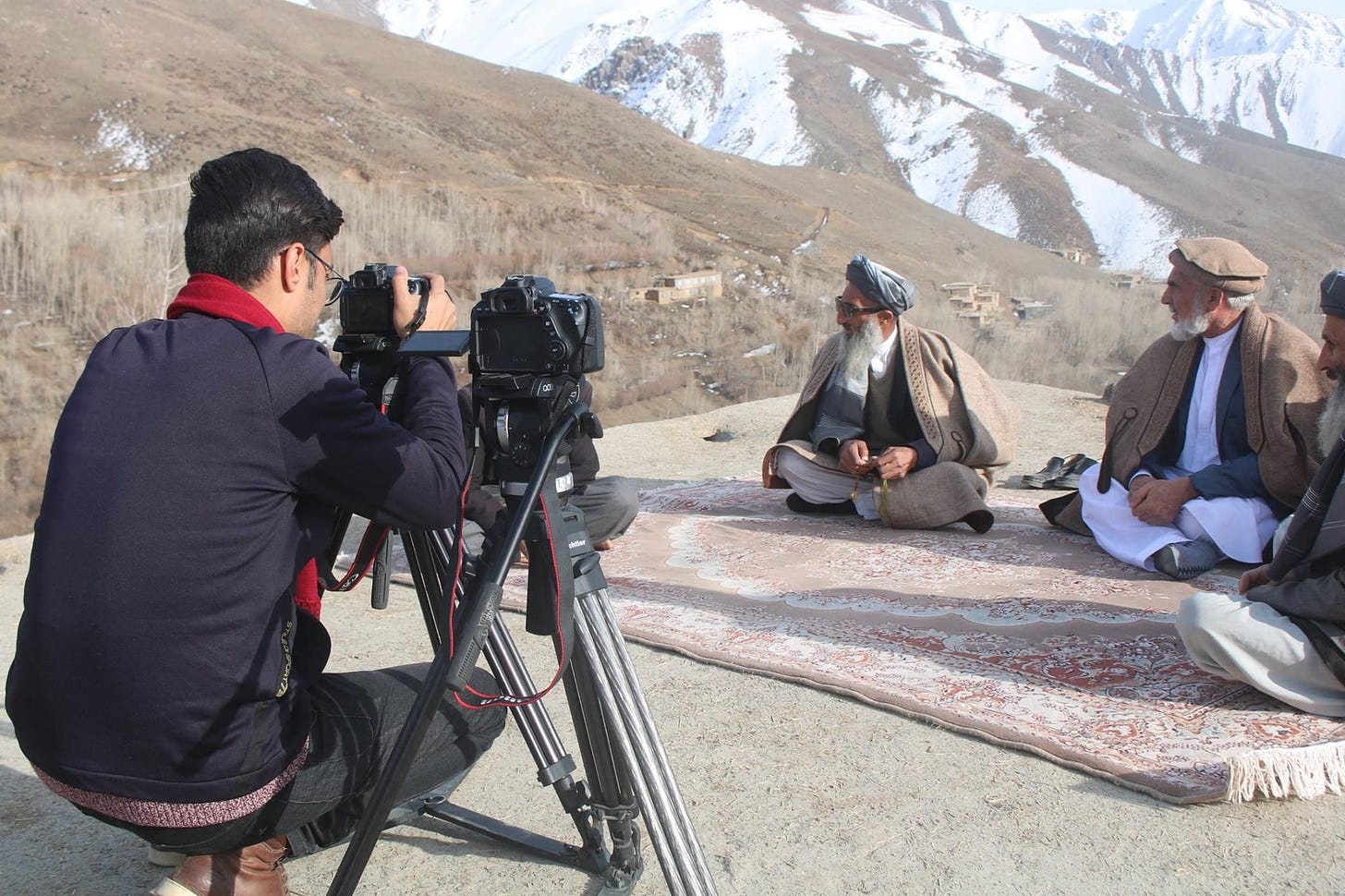The Truth From Afghanistan
The Afghan Journalists in Exile Network will link local journalists with their colleagues abroad to bypass Taliban censors and reveal what’s really happening on the ground
Shafi Karimi knew he might receive a call from ISIS militants. A few weeks earlier, he had been contacted by Afghan intelligence warning him that members of the group in Afghanistan were running a campaign to identify and assassinate journalists in Kabul. “They were trying to trick them into meeting face-to-face,” says Karimi, an award-winning journalist who has worked with Afghan and international outlets for eight years.
When the phone rang on 23 December 2020, it was a woman’s voice on the end of the line. “She asked for help without even introducing herself properly,” Karimi says. He submitted a recording to the intelligence department, which confirmed that the call came from a member of Islamic State.
After that, he had to act quickly. He applied for a Turkish visa, and on 5 February 2021, he left Afghanistan with his wife, aware that now he had been targeted, his family was at risk. Two months later, they were granted visas for France, where Karimi has now established The Afghan Journalists in Exile Network (AJEN) so that Afghan journalists can continue their work at home and abroad.
Supported by an Innovation Hub grant from Ideas Beyond Borders, AJEN will link journalists in Afghanistan with their colleagues overseas, providing an outlet for reports that can no longer be published under Taliban rule. “Media face mounting restrictions from the regime, leaving journalists with no option but to avoid covering violent incidents by the ruling government due to the threat to their lives,” Karimi says.
Others have been forced to self-censor their work to meet Taliban regulations. “The Taliban has strict policies, and the press has to comply,” Karimi says. This is where AJEN plans to provide a buffer. “AJEN will be a network between these journalists in exile and those in the country – through them, we can support those in Afghanistan, and in return, we get investigative reports and information on what’s happening inside the country – we support them, and they support us in return,” he says.
Even before the Taliban takeover, being a journalist in Afghanistan was high risk. “There were always security concerns, not just from the Taliban but ISIS and other militants. Investigative journalists were often threatened by politicians and warlords, so we had a lot of pressures, but it was absolutely nothing like now because before we had freedom of speech and were able to publish anything openly.”
Within weeks of seizing power on 15 August 2021, the Taliban had clamped down on media freedoms, prohibiting coverage of a range of subjects and issuing a list of media regulations that severely curtailed how outlets could cover the news. Since then, they have continued to tighten their grip on the media industry, targeting female journalists in particular, many of whom have been forced out of the profession.
The result is that many stories go unreported, leaving Afghans and the outside world in the dark as the Taliban enforces its rule across the country. According to Reporters without Borders, at least 231 media outlets had closed in Afghanistan by January 2022, while 6400 journalists and media workers lost their jobs following the Taliban takeover on 15 August 2021. By now, the number will be much higher, Karimi says.
Reporters in Afghanistan now have to run their work through Taliban censors to seek approval before publishing. As a result, no one wants to cover political stories, says Karimi, pointing to several foreign and local journalists who have been imprisoned by the Taliban for their work. “A lot of organizations are working to get these journalists released, but no one can do anything about it,” Karimi says.
The Afghan Journalists in Exile Network (AJEN) will support reporters in the country working under constant threat from militant groups while struggling to sustain their families in a deepening economic crisis. “It’s not just the fact that journalists have lost the freedom to do their work and face major security challenges, but also the economic situation, especially for women journalists who have lost their jobs and are now in the worst condition possible,” Karimi says.
According to the United Nations Development Programme, as much as 97 percent of the Afghan population is at risk of sinking below the poverty line if action isn’t taken soon, and people are running out of ways to survive. Karimi’s friends, who used to swap war stories and discuss their investigations when they got together on weekends, are taking shifts in restaurants and working as shoeshines to support their families as the country sinks deeper into poverty.
“Their motivation is decreasing day by day because they don’t have support, they don’t have money, and they have families to consider… so if we don’t support them, they might change their minds and leave the country,” Karimi says.
That would leave the outside world blind to the atrocities being committed under Taliban rule and the impact of the economic crisis on Afghanistan as 23 million face starvation. Among the first stories he plans to commission from AJEN reporters is an investigation into reports that people are selling their daughters in desperation to buy food. “This isn’t being widely covered,” says Karimi, whose previous work has focused on underreported subjects, including the secret life of women soldiers and how lesbians are surviving Taliban rule.
“The international community still remembers us,” Karimi says, pointing to the response from global aid organizations following the devastating earthquake in southeast Afghanistan last year. But it’s crucial to keep these events in the public eye as the country comes under tightening Taliban rule, he adds.
AJEN plans to work closely with international institutions and media outlets to share stories and reports gathered by its members on the ground, ensuring that news from the country is disseminated as widely as possible beyond the reach of the Taliban. “Our main focus is to cover stories from Afghanistan that would otherwise be censored or totally neglected for security reasons,” Karimi says.
The group will also provide financial support to journalists in the network, including those who have been forced to leave and are trying to rebuild their lives abroad. “We have a huge number of reporters now in Europe and other places who have fled the country and now have no jobs and are living in very unstable situations,” Karimi says.
AJEN will help them build connections with media outlets and find work while providing them access to on the ground reports through its reporters in Afghanistan. “There is a lot that needs to be investigated in Afghanistan, and that’s going to be our job…to show the world what truly happened after the Taliban took over,” Karimi says.






